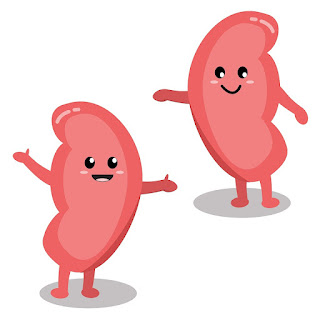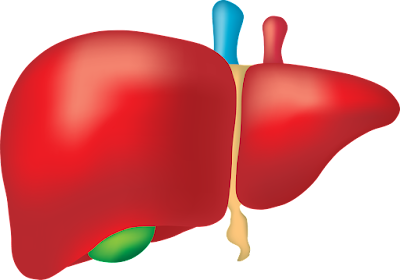Enlightopia Digestion and Metabolism for Optimal Health and
Well-being
Introduction: A well-functioning digestive system and
a healthy metabolism are essential for overall health and vitality. The
digestive system breaks down food, absorbs nutrients, and eliminates waste,
while metabolism converts these nutrients into energy. However, modern
lifestyles, poor dietary choices, and stress can negatively impact digestion
and metabolism. This article explores effective strategies to improve digestion
and boost metabolism, including dietary modifications, lifestyle changes, and
natural remedies. By implementing these recommendations, individuals can
optimize their digestive processes, enhance nutrient absorption, and achieve a
balanced metabolism, leading to improved well-being and vitality.
- Understanding
Digestion: Digestion is a complex process that begins in the mouth and
continues through the stomach, small intestine, and large intestine. The
digestive system's primary function is to break down food into smaller
molecules that can be absorbed and utilized by the body. However, various
factors can disrupt this process, leading to digestive issues such as
bloating, gas, indigestion, and constipation.
a. Eat Mindfully: Slow down while eating, chew food
thoroughly, and avoid overeating. Mindful eating aids in proper digestion and
nutrient absorption.
b. Incorporate Fiber: Increase fiber intake from
fruits, vegetables, whole grains, and legumes. Fiber promotes regular bowel
movements, prevents constipation, and supports a healthy digestive system.
c. Stay Hydrated: Drink an adequate amount of water
throughout the day to maintain hydration and support optimal digestion.
- Boosting
Metabolism: Metabolism refers to the chemical processes that occur
within the body to convert food into energy. An efficient metabolism helps
maintain a healthy weight and supports overall well-being. Several
lifestyle factors can influence metabolism positively.
a. Regular Exercise: Engage in both cardiovascular
exercises and strength training to boost metabolism, burn calories, and build
lean muscle mass.
b. Strength Training: Incorporate resistance training
into your fitness routine. Muscle tissue burns more calories at rest, leading
to a higher metabolic rate.
c. Stay Active: Adopt an active lifestyle by taking
regular breaks from prolonged sitting, incorporating physical activity into
daily routines, and choosing activities that you enjoy.
- Optimizing
Digestive Health: Promoting a healthy digestive system involves
adopting habits that support its optimal functioning. By implementing the
following strategies, individuals can enhance digestion and minimize
digestive discomfort.
a. Probiotics: Consume probiotic-rich foods like
yogurt, kefir, sauerkraut, and kimchi to introduce beneficial bacteria into the
gut. Probiotics support a healthy gut flora, aiding digestion and nutrient
absorption.
b. Digestive Enzymes: Consider taking digestive
enzyme supplements with meals, especially if experiencing difficulties
digesting certain foods. These enzymes can help break down proteins,
carbohydrates, and fats, improving nutrient absorption.
c. Reduce Stress: Chronic stress can disrupt
digestion. Practice stress-reduction techniques such as deep breathing
exercises, meditation, yoga, and regular physical activity.
d. Avoid Trigger Foods: Identify and eliminate or
reduce consumption of foods that trigger digestive symptoms, such as spicy or
fatty foods, caffeine, alcohol, and processed foods.
- Balancing
Macronutrients: A well-balanced diet plays a vital role in digestion
and metabolism. Focus on consuming a variety of nutrient-dense foods while
considering the proportions of macronutrients.
a. Protein: Include lean protein sources like
chicken, fish, legumes, and tofu in your diet. Protein supports muscle growth
and repair, boosts metabolism, and promotes satiety.
b. Healthy Fats: Opt for sources of healthy fats,
such as avocados, nuts, seeds, and olive oil. These fats aid in nutrient
absorption and support hormone production.
c. Complex Carbohydrates: Choose whole grains,
fruits, and vegetables as sources of complex carbohydrates. They provide
essential nutrients, dietary fiber, and sustained energy for optimal
metabolism.
Conclusion: Achieving improved digestion and
metabolism requires adopting healthy lifestyle habits and making informed
dietary choices. By implementing the strategies mentioned in this article,
individuals can enhance their digestive health, optimize nutrient absorption,
and boost metabolism. It is important to note that everyone's body is unique,
and what works for one person may not work for another. Experimentation and
personalization are key to finding the best approach for improving digestion
and metabolism. Prioritize your well-being by making conscious choices that
support a healthy and efficient digestive system, leading to enhanced overall
health and vitality
Visit Enlightopia
Blog for more Learning Content absolutely FREE...!!
Tags:
#Enlightopia Health, @Enlightopia Health, #Enlightopia Digestion, @Enlightopia Digestion,
#Enlightopia Metabolism, @Enlightopia Metabolism












